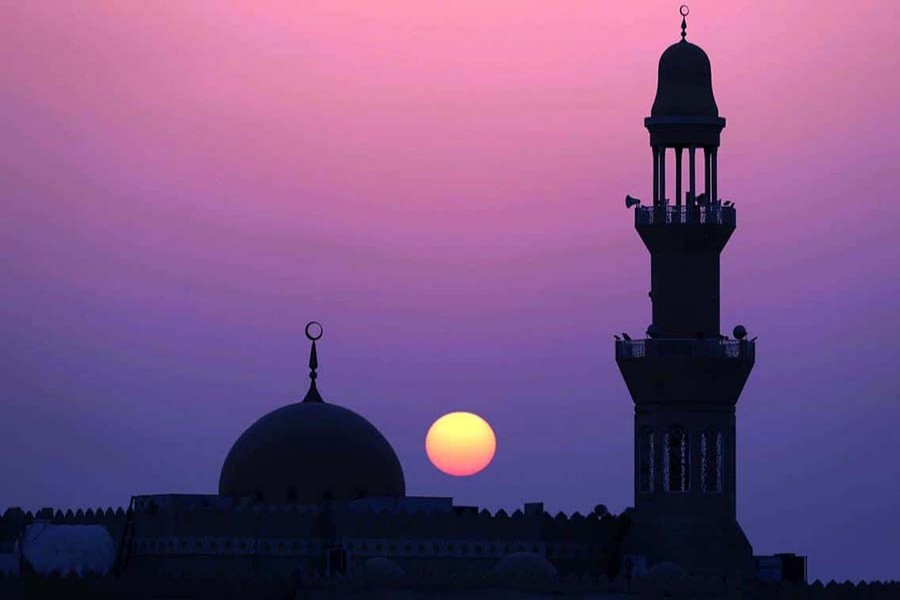
Published :
Updated :

The holy month of Ramzan, or Ramadan, has started. Though the people in Bangladesh, India and Pakistan are largely used to saying and writing Ramzan, there is a growing trend of using Ramadan. The first is originally a Persian word and was adopted in Urdu and Hindi, whereas the last is Arabic. Both terms refer to the ninth month of the Islamic lunar calendar when the Muslims worldwide practice self-restraint by observing dawn to dusk fasting and strictly avoiding physical intimacy. There is little difference in using the term Ramzan or Ramadan as both indicate the same religious obligations for the Muslims.
Nevertheless, some Muslims in South Asia now argue that Ramadan is a Quranic term, so one should use the original instead of a changed or distorted one. Though it is quite difficult to re-lettering the original Quranic term in written form as pronunciation matters, the effort is going on. Ramadan, as written in English or Bangla, is close to Quarnic Arabic but not fully accurate. It is because there is no exact letter or sign in English or Bangla to represent the entirely correct Arabic pronunciation. By learning correctly, though it is possible to pronounce the term accurately and nicely, though the limitation in writing is there.
The limitation is more in Persian and Urdu scripts in terms of Ramadan. These two languages have no alphabet representing the Arabic 'D-aad,' though a near-similar alphabet is available in Bangla. Persian and Urdu have the letter pronounced 'Z'aad' or 'Zu'ad' instead and the letter is seen like Arabic 'D-aad,'. That's why it is not possible to write or pronounce the Arabic 'D-aad' in these languages using the common alphabet. So, Ramadan becomes Ramzan or Ramazan in South Asia where the influence of Persian and Urdu is quite profound on the lives of the Muslims. For instance, due to Persian influence, most of the Muslims in Bangladesh as well as India and Pakistan say and write `Namaz' instead of 'Salat' referring to daily five-time scheduled prayer.
Some, however, argue that trying to use Ramadan to become more accurate or come closer to the original is a kind of Arabisation of the long traditional practice of the culture here.
Those who favour using Ramadan instead of Ramzan think Muslims need to come as close as possible to original terms and practices. In addition, they are of the view that it will help them to learn the religious guidelines and instructions more accurately.
There is a third view also, which says that it matters little whether some say Ramzan or Ramadan as this kind of difference is less important as it does not change or enhance the spirit of the holy month. Instead, all Muslims should focus more on the true spirit of the month by complying with the obligations properly. In this month, physical fasting and restraint need to be elevated spiritually. Besides the prescribed prayer, giving alms and doing charities to help needy people is necessary. Avoiding food festivity during Iftar, the break from the day-long fasting, is essential. Communicating with the neighbours better, paying the workers on time and rightly, becoming humble in behaviour, and maintaining patience will make the holy month rightly meaningful for any Muslim.
asjadulk@gmail.com


 For all latest news, follow The Financial Express Google News channel.
For all latest news, follow The Financial Express Google News channel.